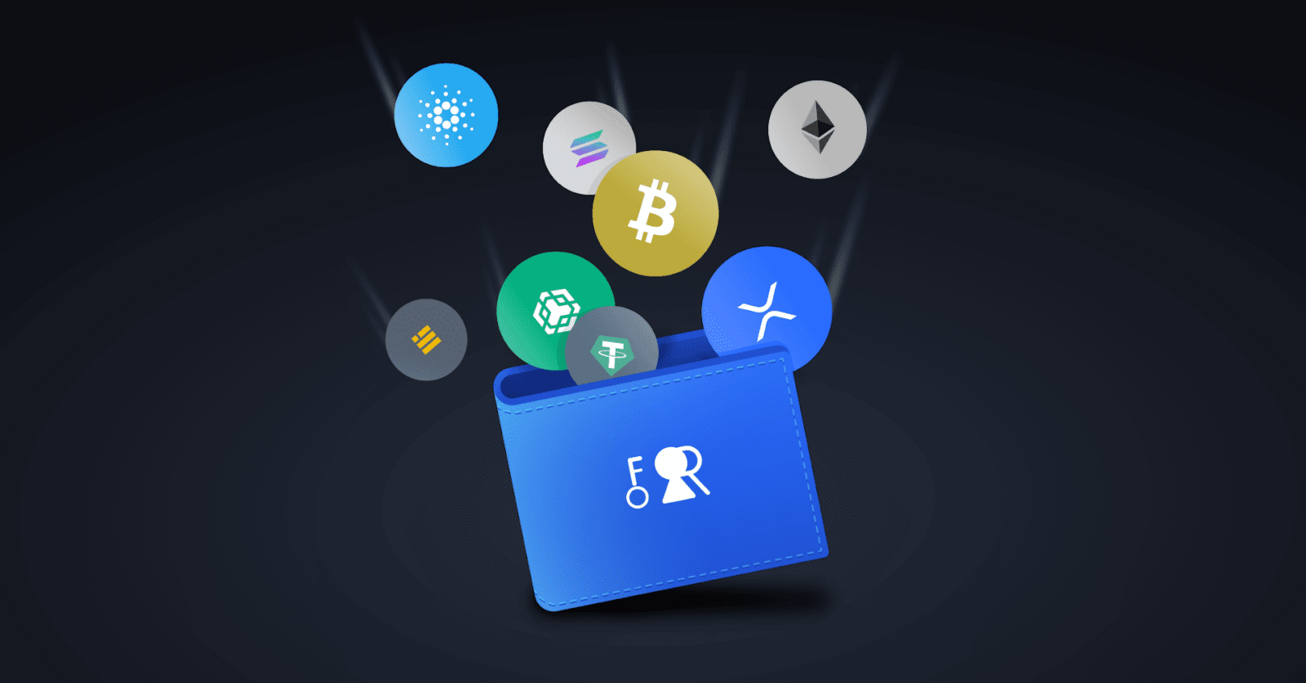In the world of cryptocurrencies, a crypto wallet is an essential tool for anyone looking to dive into the digital economy. With the rise of Bitcoin, Ethereum, and countless other cryptocurrencies, these wallets provide the security and functionality required to safely store and manage your digital assets. But what exactly is a crypto wallet, and how does it work? In this article, we will explore the concept of trust wallet, their types, and why they are important in the world of digital finance.
What is a Crypto Wallet?
A crypto wallet is a software application or physical device that allows you to store and manage your cryptocurrencies. It works similarly to a traditional wallet but in the digital realm. Instead of holding physical cash, it stores the private keys required to access your cryptocurrency holdings. Private keys are essentially your passwords, granting you access to your digital assets. A crypto wallet enables you to send, receive, and store these assets securely, making it a crucial component for anyone involved in the world of cryptocurrencies.
There are two main components of a crypto wallet:
- Public Key: This is akin to your wallet address, which you can share with others to receive payments. It is a string of characters and acts as the “account number” where you can receive your cryptocurrencies.
- Private Key: This is the critical component that should be kept secret. It is used to sign transactions and prove ownership of the digital assets associated with the wallet. If someone gains access to your private key, they can potentially steal your funds.
Types of Crypto Wallets
Crypto wallets come in different forms, each with its own advantages and trade-offs. These wallets can be broadly categorized into two types:
1. Hot Wallets (Software Wallets)
Hot wallets are connected to the internet, allowing for quick and easy access to your cryptocurrencies. These wallets are typically used for frequent transactions, such as trading or buying goods and services. They are convenient but come with some security risks, as they are exposed to online threats like hacking.
Hot wallets can be further divided into:
- Desktop Wallets: Installed on your computer and accessible through software applications. Popular desktop wallets include Exodus and Electrum.
- Mobile Wallets: Apps installed on your smartphone, allowing for easy access to your crypto assets on the go. Examples include Trust Wallet and Coinomi.
- Web Wallets: Browser-based wallets that you can access from any device with an internet connection. Examples include Blockchain Wallet and MetaMask.
2. Cold Wallets (Hardware and Paper Wallets)
Cold wallets are offline storage solutions, providing enhanced security since they are not connected to the internet. This makes them less vulnerable to hacking and online threats. However, they are less convenient for day-to-day use, as you must manually connect them to a computer or smartphone to access your funds.
Cold wallets include:
- Hardware Wallets: Physical devices that store your private keys offline. They are considered one of the most secure options for crypto storage. Popular hardware wallets include Ledger Nano S, Ledger Nano X, and Trezor.
- Paper Wallets: A physical printout of your private and public keys. While highly secure from online threats, they can be easily lost or damaged, making them less practical for long-term storage.
Why Do You Need a Crypto Wallet?
A crypto wallet is vital for several reasons:
- Security: Without a wallet, your cryptocurrency would not be stored in a secure manner. Since cryptocurrencies operate on a decentralized network, wallets are the only way to control your digital assets securely.
- Control Over Your Assets: Crypto wallets give you complete control over your funds, unlike traditional banking systems, where third parties manage your money.
- Easy Transactions: Whether you’re sending funds to a friend, making an investment, or engaging in an online purchase, a wallet is required for all crypto transactions.
- Privacy: Crypto wallets provide users with a higher level of privacy compared to traditional financial systems, as transactions do not require personal information.
- Access to the Cryptocurrency Market: Many cryptocurrency exchanges and decentralized finance (DeFi) platforms require you to have a wallet to interact with their services.
How to Choose the Right Crypto Wallet
Choosing the right crypto wallet depends on your specific needs and level of experience. Here are some factors to consider:
- Security: If security is your top priority, consider using a hardware wallet or a reputable software wallet with strong encryption features. Avoid using exchanges as your primary wallet due to security risks.
- Usability: For beginners, mobile and desktop wallets with an easy-to-use interface are a good option. If you’re a frequent trader, a hot wallet will be more convenient.
- Backup and Recovery: Ensure that the wallet you choose has a secure way to back up your keys (e.g., seed phrases) and recover them if your device is lost or damaged.
- Supported Coins: Some wallets support only certain cryptocurrencies, so check if the wallet is compatible with the coins you intend to store.
- Reputation: Opt for wallets with a good reputation and a track record of security and reliability.
